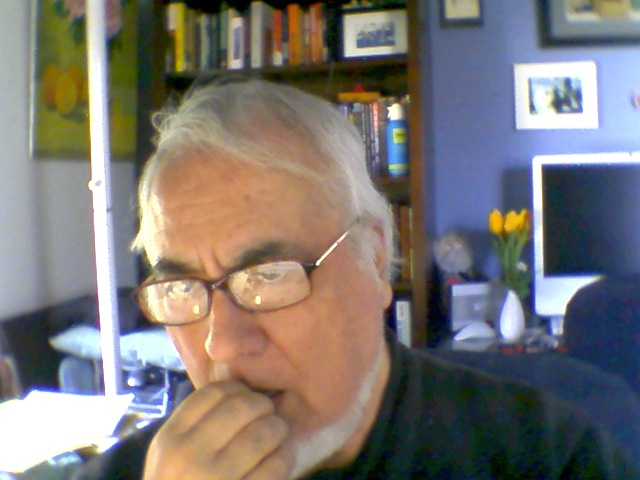Reprinted from Greanville Post
The decades-old "drug war" inaugurated under Richard Nixon has been a complete and utter social calamity. Originally riding a blunt conservative backlash against the 1960s "permissive hippie culture," it has ruined millions of lives, injected a pretext for the massive incarceration of minorities and people of limited economic means (thereby creating a thriving prison industry) and, in a rough parallel with the 9/11 events, provided a powerful smokescreen for the gradual creation of a police state via the decimation of our Constitutional liberties. It has also cost the national treasury trillions of dollars desperately needed elsewhere. What it has notdone is defeat the widespread consumption of drugs in the United States, a longstanding and deeply embedded cultural habit currently representing a multibillion dollar market, nor diminish the resultant growth of vicious international drug cartels, which in nations like Mexico and Colombia have acquired a life of their own, something like a parasitic twin state within the state.
The Drug Policy Alliance provides a good summary of the Drug War's early stages. As usual, the historical context is crucial to understand how this mess came to occupy an obsessive place in domestic judicial policy.
The Early Stages of Drug Prohibition
Many currently illegal drugs, such as marijuana, opium, coca, and psychedelics have been used for thousands of years for both medical and spiritual purposes.
Why are some drugs legal and other drugs illegal today? It's not based on any scientific assessment of the relative risks of these drugs -- but it has everything to do with who is associated with these drugs.
The first anti-opium laws in the 1870s were directed at Chinese immigrants. The first anti-cocaine laws, in the South in the early 1900s, were directed at black men. The first anti-marijuana laws, in the Midwest and the Southwest in the 1910s and 20s, were directed at Mexican migrants and Mexican Americans. Today, Latino and especially black communities are still subject to wildly disproportionate drug enforcement and sentencing practices.
Nixon and the Generation Gap
In the 1960s, as drugs became symbols of youthful rebellion, social upheaval, and political dissent, the government halted scientific research to evaluate their medical safety and efficacy.
In June 1971, President Nixon declared a "war on drugs." He dramatically increased the size and presence of federal drug control agencies, and pushed through measures such as mandatory sentencing and no-knock warrants. Nixon temporarily placed marijuana in Schedule One, the most restrictive category of drugs, pending review by a commission he appointed led by Republican Pennsylvania Governor Raymond Shafer. In 1972, the commission unanimously recommended decriminalizing the possession and distribution of marijuana for personal use. Nixon ignored the report and rejected its recommendations.
Between 1973 and 1977, however, 11 states decriminalized marijuana possession. In January 1977, President Jimmy Carter was inaugurated on a campaign platform that included marijuana decriminalization. In October 1977, the Senate Judiciary Committee voted to decriminalize possession of up to an ounce of marijuana for personal use.
Within just a few years, though, the tide had shifted. Proposals to decriminalize marijuana were abandoned as parents became increasingly concerned about high rates of teen marijuana use. Marijuana was ultimately caught up in a broader cultural backlash against the perceived permissiveness of the 1970s.
The 1980s and 90s: Drug Hysteria and Skyrocketing Incarceration Rates
The presidency of Ronald Reagan marked the start of a long period of skyrocketing rates of incarceration, largely thanks to his unprecedented expansion of the drug war. The number of people behind bars for nonviolent drug law offenses increased from 50,000 in 1980 to over 400,000 by 1997.
Against this backdrop, intelligent voices have suggested alternative policies. A longtime critic and highly qualified observer, having among his many credentials being a professor of preventive medicine and holding a masters degree in public policy, is our own senior editor, Steven Jonas. Dr Jonas just completed a book on the subject, Ending the Drug War"; Solving the Drug Problem: The Public Health Approach. (Punto Press Publishing).
Positing squarely that the Drug War not only must end but can end if the nation's political will is mustered to try a new yet amply proven approach, the book is beginning to draw attention from influential quarters. Written in an accessible, non-technical style, Jonas discusses the history and evolution of "the Drug War" but, as promised in the title, it does not stop there: he also furnishes a solution. Jonas is firm in his conviction that, far from intractable, the drug epidemic is fully treatable and curable, and that policy therapies exist guaranteeing the termination of this scourge. This is the kind of volume that every concerned American (and international reader, for that matter) should read.
(Note: You can view every article as one long page if you sign up as an Advocate Member, or higher).








